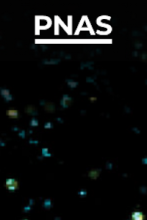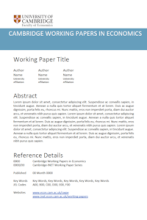This is a joint project in conjunction with UbiquityLab: A Platform for Large-Scale Online Experiments with Real-Time Interactions Among Participants.
Co-financed with Newton Trust.
The emergence and sustenance of cooperative behavior is fundamental for a society to thrive. Recent experimental studies have shown that cooperation increases in dynamic networks in which subjects can choose their partners.
However, these studies did not vary reputational knowledge, or what subjects know about other’s past actions, which has long been recognized as an important factor in supporting cooperation. They also did not give subjects access to global social knowledge, or information on who is connected to whom in the group. As a result, it remained unknown how reputational and social knowledge foster cooperative behavior in dynamic networks both independently and by complementing each other. In an experimental setting, we show that global reputational knowledge is crucial to sustaining a high level of cooperation and welfare. Cooperation is associated with the emergence of dense and clustered networks with highly cooperative hubs. Global social knowledge has no effect on the aggregate level of cooperation. A community analysis shows that the addition of global social knowledge to global reputational knowledge affects the distribution of cooperative activity: cooperators form a separate community that achieves a higher cooperation level than the community of defectors. Members of the community of cooperators achieve a higher payoff from interactions within the community than members of the less cooperative community. The experiments were conducted using UbiquityLab, a novel platform to run large-scale, interactive online experiments.
A description of the research for the general public is available here.
The Effects of Reputational and Social Knowledge on Cooperation
The Effects of Reputational and Social Knowledge on Cooperation, Edoardo Gallo and Chang Yan, Proceedings of the National Academy of Sciences, Vol. 112 no. 12 pp. 3647-3652 (2015)
The emergence and sustenance of cooperative behavior is fundamental for a society to thrive. Recent experimental studies have shown that cooperation increases in dynamic networks in which subjects can choose their partners. However, these studies did not vary reputational knowledge, or what subjects know about other's past actions, which has long been recognized as an important factor in supporting cooperation. They also did not give subjects access to global social knowledge, or information on who is connected to whom in the group. As a result, it remained unknown how reputational and social knowledge foster cooperative behavior in dynamic networks both independently and by complementing each other. In an experimental setting, we show that global reputational knowledge is crucial to sustaining a high level of cooperation and welfare. Cooperation is associated with the emergence of dense and clustered networks with highly cooperative hubs. Global social knowledge has no effect on the aggregate level of cooperation. A community analysis shows that the addition of global social knowledge to global reputational knowledge affects the distribution of cooperative activity: cooperators form a separate community that achieves a higher cooperation level than the community of defectors. Members of the community of cooperators achieve a higher payoff from interactions within the community than members of the less cooperative community.
Efficiency and Equilibrium in Network Games: An Experiment
Efficiency and Equilibrium in Network Games: An Experiment, Edoardo Gallo and Chang Yan, Cambridge Working Papers in Economics (2015)
The tension between efficiency and equilibrium is a central feature of economic systems. In many contexts, social networks mediate this trade-off: an individual's network position determines equilibrium play, and social relations allow coordination on an efficient norm. We examine this trade-off in a network game with a unique Nash equilibrium, but such that agents can achieve a higher payoff by following a "collaborative norm". Subjects establish and maintain a collaborative norm in the circle, but the norm weakens with the introduction of one asymmetric node in the wheel. In complex and asymmetric networks of 15 and 21 nodes, the norm disappears and subjects' play converges to Nash on every node. We provide evidence that subjects base their decisions on their degree, rather than the overall network structure. Methodologically, the paper shows the capabilities of UbiquityLab: a novel platform to conduct interactive experiments online with a large number of participants.



